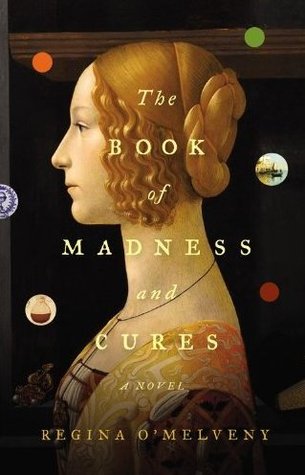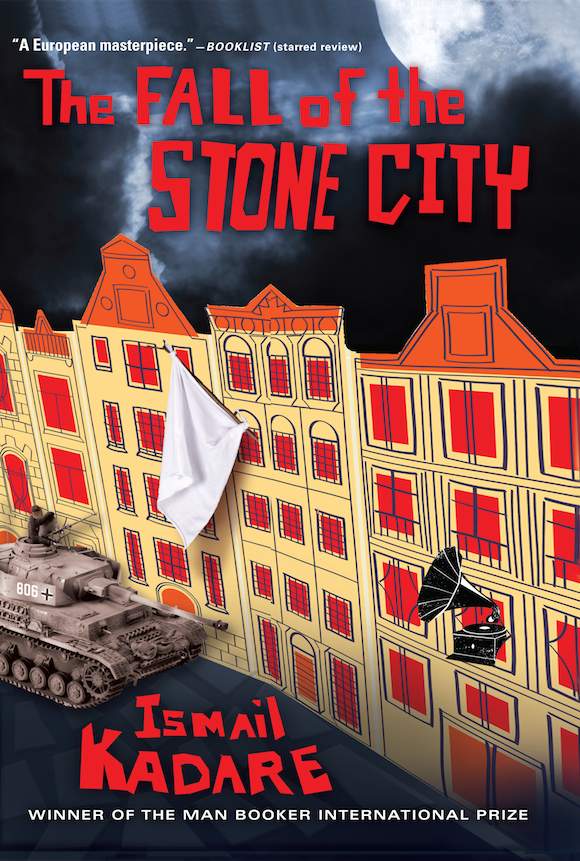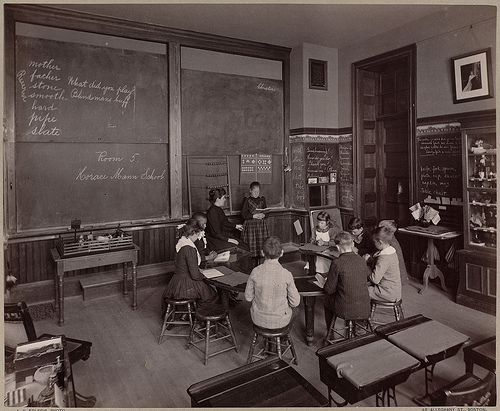Literary Boroughs #47: Seattle, WA
The Literary Boroughs series will explore little-known and well-known literary communities across the country and world and show that while literary culture can exist online without regard to geographic location, it also continues to thrive locally. Posts are by no means exhaustive and we encourage our readers to contribute in the comment section. The series will run on our blog from May 2012 until AWP13 in Boston. Please enjoy the forty-seventh post on Seattle, Washington, by Cody Walker. -Andrea Martucci, Ploughshares Managing Editor
In a ranking of America’s Most Literate Cities, Seattle has finished first or second in each of the past seven years. And yes, ranking cities in such a way is sort of silly—but still, but still. Seattle doesn’t have the literary history of a Boston or a New York, but it’s become a mecca for bookish types who don’t mind a bit of rain on their chunky-frame glasses. And the rain gives writers the perfect opportunity to go indoors—into dive bars, into coffee shops—and talk to other writers. (What you’ve heard is true: Seattle has ten zillion coffee shops.)
Among bars, the Blue Moon deserves special mention. Founded in 1934, it’s the oldest remaining tavern in the city’s University District. Theodore Roethke, Richard Hugo, and Tom Robbins were all regulars in the ’50s and ’60s. In 1995 the Seattle City Council proclaimed that, seeing as Roethke had conducted numerous “symposia formal and informal in the Blue Moon Tavern,” the alley adjacent to the bar would henceforth be known as “Roethke Mews.”
What the city is known for:
Rain, coffee, Microsoft, Boeing, Nirvana, Pike Place Market, the Space Needle, cautious drivers, and liberal politics.
Writers with Seattle connections:
Past: Theodore Roethke, Richard Hugo, Octavia Butler, and August Wilson.
Present: David Shields, Sherman Alexie, Jonathan Raban, Timothy Egan, Heather McHugh, David Wagoner, Richard Kenney, Linda Bierds, Dan Savage, Jonathan Evison, Jason Whitmarsh, Martha Silano, Peter Mountford, Andrew Feld, Pimone Triplett, Neal Stephenson, Julie Larios, Charles Johnson, Frances McCue, Ed Skoog, Rebecca Brown, Ryan Boudinot, and many, many more.
Literary references:
Seattle plays a prominent role in Maria Semple’s Where’d You Go, Bernadette, Jonathan Raban’s Driving Home: An American Journey, Sherman Alexie’s Indian Killer, David Shields’ Black Planet: Facing Race During an NBA Season, Michael Byers’ Long for This World, Lynda Barry’s The Good Times Are Killing Me, Tom Robbins’ Still Life with Woodpecker, Charles Burns’ Black Hole, and Richard Hugo’s The Real West Marginal Way.
Where to learn:
The University of Washington’s M.F.A. Program in Creative Writing boasts three MacArthur Fellows among its faculty: Richard Kenney, Heather McHugh, and Linda Bierds. The English Department sponsors an annual Theodore Roethke Memorial Poetry Reading; past readers have included John Berryman, Elizabeth Bishop, Lucille Clifton, X. J. Kennedy, and Seamus Heaney.
Richard Hugo House offers classes that range from traditional writing workshops to more far-flung explorations: of monsters, of found objects, of Richard Hugo himself. It also commissions writers to investigate a theme and present the resulting work as part of its Hugo Literary Series, and it hosts one of the city’s liveliest reading series: Cheap Wine and Poetry (where wine is a buck a cup). The Zine Archive and Publishing Project (ZAPP) library may be found (and marveled at) on the house’s second floor. ZAPP’s collection includes more than 20,000 zines, comics, chapbooks, and other small press periodicals.
Where to find reading material:
No bookstore in Seattle is more beloved by its customers than Open Books: A Poem Emporium. Owned and staffed by John W. Marshall and Christine Deavel (terrific poets themselves; Deavel’s Woodnote recently won a Washington State Book Award), it’s one of three poetry-only bookstores in the country. (The other two are in Cambridge and Boulder.) The owners host a reading (or two) nearly every week, and sell books ranging from the latest bestsellers (in poetry terms, mind you) to rare and first editions.
Other important Seattle bookstores include Elliott Bay Book Company, Third Place Books, University Book Store, Left Bank Books, Magus Books, and Twice Sold Tales. Amazon lurks nearby (both physically and virtually)—but please, whenever possible, buy your books from a bookstore.
The Central Library, designed by Rem Koolhaas and Joshua Prince-Ramus, opened in 2004. New Yorker critic Paul Goldberger hailed it as “the most important new library to be built in a generation, and the most exhilarating.” From the outside, the building looks spectacular; Robert Andrew Powell published a funny essay in a recent issue of Harper’s about spending too much time inside the 11-story glass and steel near-pyramid. For those undaunted by the building’s immensity: books await! And computer terminals! (Over 400!) Two sites worth investigating: Washington State Poet Laureate Kathleen Flenniken’s The Far Field (which features work from poets around the state) and the Stranger’s News and Arts Blog, Slog (especially Books Editor Paul Constant’s posts on literature and Tea Party skullduggery).
Where to get published:
Poetry Northwest was founded in Seattle in 1959; its editors have included Carolyn Kizer and (for 36 years) David Wagoner. It relocated to Portland in 2005; in 2010, it returned to the greater Seattle area, under the editorship of Kevin Craft. The journal publishes poems, essays, and book reviews; it sponsors readings and symposiums; and it occasionally releases issues devoted to a particular theme (a recent issue addressed poetry and science).
An incomplete list of Seattle’s other indispensible literary journals would include Crab Creek Review, Filter, The Seattle Review, and the newish Monarch Review. Writers with finished manuscripts might turn to the University of Washington Press (publisher of Kathleen Flenniken’s Plume), Floating Bridge Press (publisher of Molly Tenenbaum’s The Cupboard Artist), or Wave Books (publisher of Mary Ruefle’s Madness, Rack, and Honey). Rose Alley has been publishing poetry (mostly formal) since 1995; Dark Coast has been publishing multiple genres (mostly experimental) since 2010.
Where to write:
Bent forward in a coffee shop, of course. Favorites include Café Solstice and Café Allegro (both in the University District), Victrola Coffee (in Capitol Hill), Uptown Espresso (in Belltown), Zoka Coffee (in Green Lake), and Java Bean (in Ballard and West Seattle). Other writer-friendly spots include Suzzallo Library, Top Pot Doughnuts, Cal Anderson Park, and any of the Washington State ferries.
Events/Festivals:
Seattle Arts & Lectures brings nationally prominent writers to Benaroya Hall. Authors scheduled to present lectures in 2013 include Stephen Greenblatt, Susan Orlean, and Joan Didion. SAL also offers a poetry series, curated with wit and imagination by Rebecca Hoogs.
Bumbershoot is an annual three-day music and arts festival that takes place over Labor Day weekend at the Seattle Center. Readings and literary panels in recent years have featured Karen Finneyfrock, Lindy West, Adam Mansbach, and Rick Moody.
The Stranger hosts a Genius Awards Party each fall. Winners in the literature category have included Jonathan Raban, Heather McHugh, Sherman Alexie, and Ellen Forney.
The Jack Straw Writers Program stages public readings for its rotating cast of writers (12 per year) each May. Excerpts from the readings are then produced for podcasts and for broadcast on KUOW, Seattle’s NPR affiliate station.
Seattle is home to a number of other reading series with devoted followings. A few of the better-known ones include the Seattle Poetry Slam, Castalia, the Off Hours, and It’s About Time. Newcomer Lit Crawl looks particularly promising. Hosts and performers, please add more suggestions in the comments field!
Cody Walker taught English at the University of Washington from 1997-2008. He also taught poetry classes through Seattle Arts & Lectures’ Writers in the Schools Program, and he served as a writer-in-residence at the Richard Hugo House and the Seattle Art Museum. In 2007 he was elected Seattle Poet Populist. He is the author of the poetry collection Shuffle and Breakdown (Waywiser Press, 2008) and the co-editor of Alive at the Center: An Anthology of Poems from the Pacific Northwest (forthcoming from Ooligan Press). He can be found online at codywalker.net.
All photos courtesy the author.


